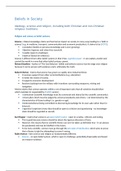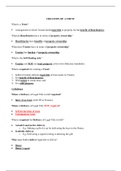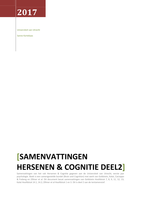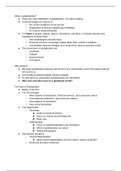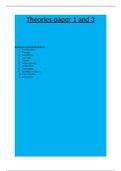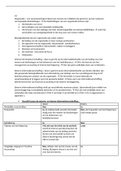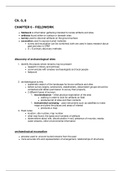Summary
Summary AQA A-Level Sociology Beliefs in Society (Paper 2)
- Institution
- AQA
These notes explore Beliefs in Society, which is one of the topics that appears in AQA A Level Sociology Paper 2 (worth 40 marks: 50% of Paper 2). They have been structured with the help of the actual exam specification provided by AQA, ensuring that everything has been covered. Other topics are av...
[Show more]
